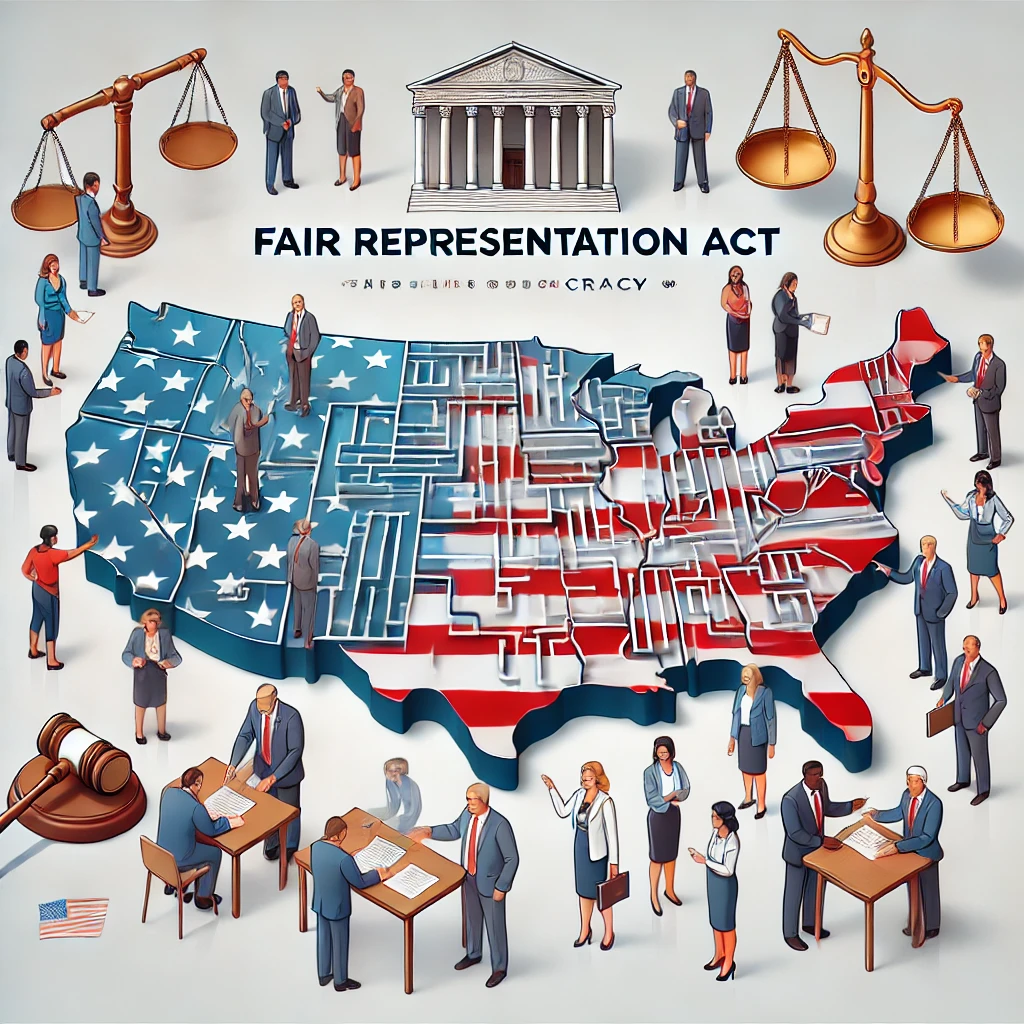Government Reform
Trust in government is collapsing — and for good reason. Congress is gridlocked, elections are drowned in money, and partisan games matter more than results. Politicians spend more time fundraising than governing. Lobbyists write the laws. And when scandals happen, accountability almost never follows.
It’s no wonder so many Americans feel their voice doesn’t matter anymore. The system is designed to protect itself, not the people it represents. Reforms like term limits, fair districting, and campaign finance changes are supported by huge majorities of Americans — yet they never pass. Why? Because the very people who benefit from the current system are the ones in charge of fixing it.
That’s why these policies go straight at the root causes of dysfunction. The reforms below are designed to:
Break the grip of career politicians with term limits and accountability measures.
End partisan map-rigging through anti-gerrymandering rules.
Pull money out of politics so votes matter more than donors.
Strengthen ethics and oversight to restore integrity in public service.
Create new tools for accountability that put power back in the hands of citizens.
These changes aren’t about left or right — they’re about restoring a government that actually works for the people again.
Our elections shouldn’t be auctions where the biggest check wins. The Vote America Act tackles two core problems: the dominance of big money and the lack of real voter choice. It caps donations, enforces transparency, and applies antitrust principles to campaign finance—limiting corporate and billionaire influence. At the same time, it introduces Ranked-Choice Voting, so Americans can finally vote their values without fear of “wasting” their ballot. Together, these reforms end the two-party chokehold, open the door to new candidates, and rebuild trust that elections reflect the will of the people—not the wallets of the powerful.
Public service should mean public trust—not a stepping stone for profit or power. The Standards for Public Trust set minimum qualifications for federal appointees and members of Congress, requiring real-world expertise in the areas they oversee. No more unqualified donors running agencies they don’t understand. The Act also enforces strict ethics rules: no stock trading in office, mandatory transparency in financial holdings, and clear consequences for conflicts of interest. By raising the bar for who can serve—and how—they serve, we restore integrity to the offices that shape our lives. This isn’t about partisanship. It’s about competence, accountability, and trust.
For too long, politicians have chosen their voters instead of the other way around. The Fair Representation Act ends partisan gerrymandering by requiring independent commissions to draw congressional districts using clear, nonpartisan standards. It also expands ranked-choice voting to congressional races, ensuring candidates must earn broad support instead of clinging to narrow bases. Together, these reforms guarantee that every vote carries equal weight, that districts reflect real communities rather than political interests, and that Congress finally represents the people—not the parties.
For too long, incumbents have treated their seats like lifetime property instead of public trust. The CRA introduces strict but flexible term limits—three terms for Representatives, two for Senators—while giving voters the final say through a Confidence Vote. This safeguard lets citizens retain proven leaders or demand new voices, ending the stranglehold of career politicians. The amendment also adds balance: critical committee chairs are exempt until replaced, ensuring continuity in national security and oversight, and it brings long-overdue 18-year limits for Supreme Court justices. Together, these reforms restore accountability, refresh leadership, and return power where it belongs—back to the people.
mmigration is vital to America’s identity and economy, but today’s system is broken—too slow, too chaotic, and too vulnerable to abuse. The ADPA takes a balanced approach: stronger borders and smarter enforcement so only real threats are stopped, paired with a streamlined, fair, and secure legal immigration process that families and workers can actually use. It also includes a clear pathway to citizenship for those who serve honorably in our military—ensuring that anyone willing to defend America can truly become part of it. By fixing the legal pipeline first, border enforcement becomes effective, immigration supports economic stability, and America keeps its promise of fairness and opportunity.
The First Amendment Integrity Initiative tackles the crisis of misinformation by creating a voluntary credibility system that works more like a credit score than censorship. Politicians, media outlets, and organizations are scored based on consistency, accuracy, and honesty — giving the public a clear tool to separate fact from manipulation. This protects free speech while holding powerful voices accountable, restoring trust without silencing anyone.






